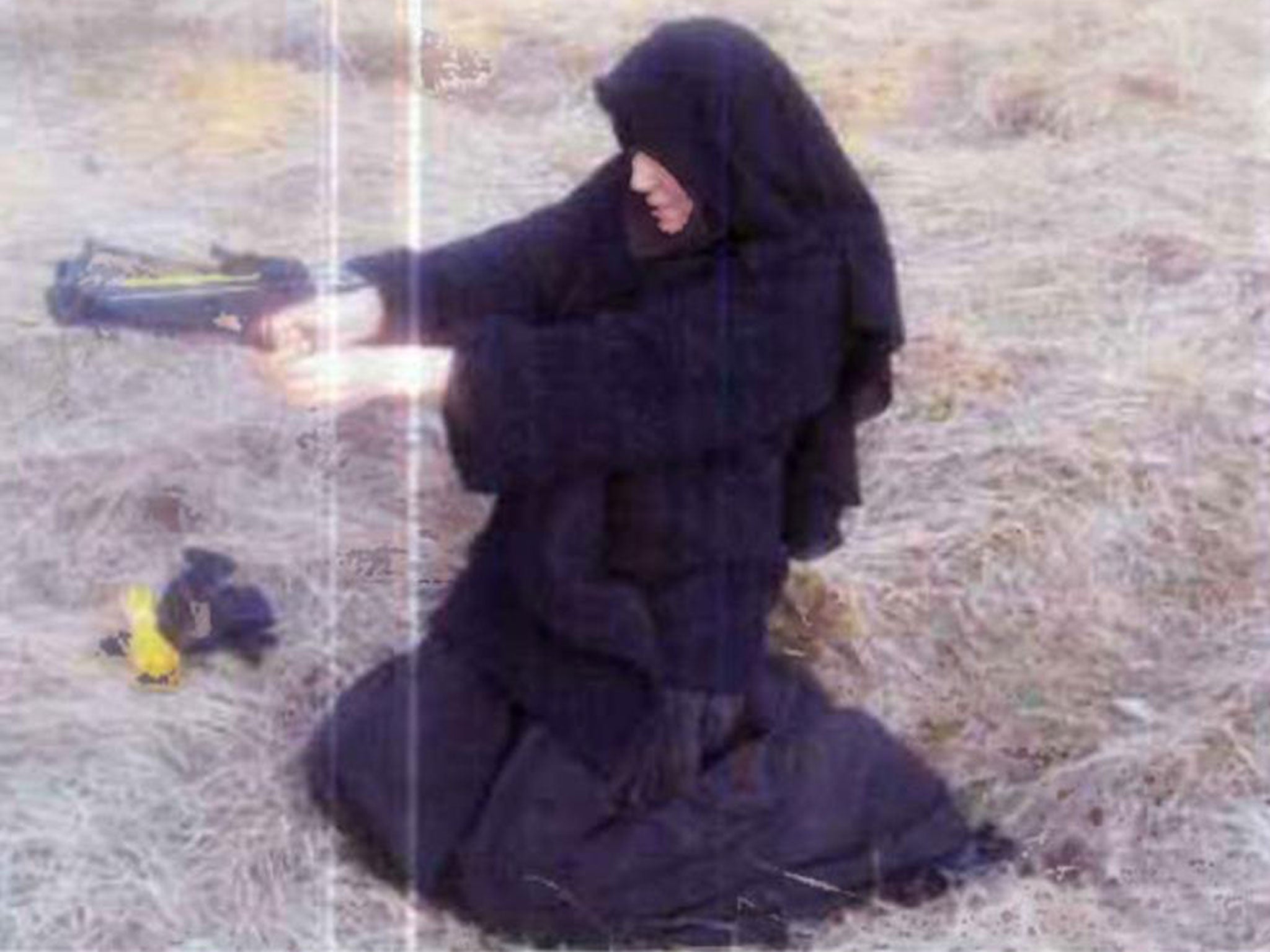Charlie Hebdo trial: Paris gunman’s widow jailed in absence for 30 years as 13 others found guilty
Widow of gunman who killed five people convicted in absence after fleeing to Syria

The fuguitive widow of an Isis gunman and a man described as his logistician have been convicted of terrorism and sentenced to 30 years in prison in the trial of 14 people over the deadly attacks in Paris on the satirical Charlie Hebdo newspaper and a kosher supermarket.
The verdict ends the three-month trial linked to the three days of killings across Paris six years ago claimed jointly by Isis and al-Qaeda.
During the proceedings, France was struck by new attacks, a wave of coronavirus infections among the defendants, and devastating testimony bearing witness to bloodshed that continues to shake France.
Among those sentenced in their absence was Hayat Boumeddiene, former wife of Amedy Coulibaly who killed a police officer and then four people in a Jewish supermarket.
The two men who spirited her out of France, who were also tried in absentia, are thought to be dead.
Eleven others were present and all were convicted, with sentences ranging from 30 years for Ali Riza Polat, described as the lieutenant of the virulently antisemitic market attacker Coulibaly, to four years with a simple criminal conviction.
A total of 17 people were murdered during the attacks in January 2015.
The three attackers – brothers Said and Cherif Kouachi, and Amedy Coulibaly – were all killed by police.Boumeddiene, a widow, fled to Syria and is believed to still be alive. Police described her at the time as an “armed and dangerous” suspect.
In all, investigators sifted through 37 million bits of phone data, according to video testimony by judicial police.
Among the men handcuffed behind the courtroom’s enclosed stands, flanked by masked and armed officers, were several who had exchanged texts or calls with Coulibaly in the days leading up to the attack. They described any contacts as normal communications among acquaintances.
Among those giving evidence were the widows of Cherif and Said Kouachi, the brothers who stormed Charlie Hebdo’s offices, decimating the newspaper’s editorial staff in what they said was an act of vengeance for its publication of caricatures of the Prophet Muhammad years before. The offices had previously been firebombed and were unmarked, and editors had round-the-clock protection. But it wasn’t enough.
In all, 12 people died in that attack. The first was Frederic Boisseau, who worked in maintenance. Then the Kouachis seized Corinne Rey, a cartoonist who had gone down to smoke, and forced her upstairs to punch in the door code. She watched in horror as they opened fire on the editorial meeting. For years, she harboured paralysing guilt that her life was spared while so many others died.
“I was not killed, but what happened to me was absolutely chilling, and I will live with it until my life is over,” she told the court.
The next day, Coulibaly shot and killed a young police officer after failing to attack a Jewish community centre in the suburb of Montrouge. By then, the Kouachis were on the run and France was racked with fear.
At a kosher supermarket, Coulibaly entered, carrying an assault rifle, pistols and explosives. He methodically fired on an employee and a customer, then killed a second customer before ordering a cashier to close the store’s blinds.
The first victim, Yohan Cohen, lay dying on the ground and Coulibaly turned to some 20 hostages in the room and asked if he should "finish him off".
Despite the pleas, Coulibaly fired a killing shot, according to testimony from cashier Zarie Sibony. “You are Jews and French, the two things I hate the most,” Coulibaly told them.
The Kouachi brothers were cornered in a printing shop with their own hostages, and ultimately, all three attackers died in near-simultaneous police raids.
It was the first attack in Europe claimed by the Isis, which struck Paris again later that year to even deadlier effect.
Boumeddiene, believed to be of Algerian descent, reportedly lived in Coulibaly’s apartment while he was in prison for his part in a plot to help Paris metro bomber Smain Ait Ali Belkacem escape.
Charlie Hebdo: Mourning in Paris
Show all 6According to Le Monde, Boumeddiene said she and Coulibaly practised firing crossbows together in the countryside while on holiday visiting extremist Djamel Beghal, who claimed to have met Osama bin Laden in Afghanistan to plan a suicide bombing.
During interrogation, she reportedly said she was inspired by her boyfriend and radicals she lived with to “read a lot of books on religion”.
Six weeks into the trial, in October, a French schoolteacher who opened a debate on free speech by showing students the Muhammad caricatures was beheaded by an 18-year-old Chechen refugee.
Eight weeks into the trial, a young Tunisian armed with a knife and carrying a copy of the Quran attacked worshippers in a church in the southern city of Nice, killing three.
Subscribe to Independent Premium to bookmark this article
Want to bookmark your favourite articles and stories to read or reference later? Start your Independent Premium subscription today.

Join our commenting forum
Join thought-provoking conversations, follow other Independent readers and see their replies